UN chief issues stark Libya warning as fighting rages south of Tripoli
TRIPOLI: UN chief Antonio Guterres pushed Friday to avoid a military escalation in Libya, as commander Khalifa Haftar’s forces clashed with pro-government fighters south of the capital Tripoli.
Haftar on Thursday launched an offensive to take the capital, held by a UN-backed unity government and an array of militias.
The lightning assault was met with international appeals for restraint and an emergency UN Security Council meeting was set to be held later Friday.
I leave Libya with a heavy heart and deeply concerned. I still hope it is possible to avoid a bloody confrontation in and around Tripoli.
The UN is committed to facilitating a political solution and, whatever happens, the UN is committed to supporting the Libyan people.
— António Guterres (@antonioguterres) April 5, 2019
Guterres met Haftar in the eastern city of Benghazi at the end of a visit to the chaos-hit country, but neither his self-proclaimed Libyan National Army or the UN gave details of the talks.
“I leave Libya with a deep concern and a heavy heart,” Guterres said in a statement.
“I still hope it will be possible to avoid a bloody confrontation in Tripoli.”
Eastern Libyan forces seized the former Tripoli International Airport on the southern outskirts of the capital, a spokesman said.
Ahmed Al-Mesmari also told reporters his forces were in control of Tarhouna and Aziziya, two towns near Tripoli. He said five of his troops had been killed.
Militias in western Libya fought forces under rival army commander Khalifa Haftar on Friday, capturing 100 of his soldiers.
Earlier, LNA forces clashed with a pro-government alliance less than 50 kilometers south of the capital, a unity government source said.
Haftar’s press office confirmed there had been “violent fighting on the edge of Tripoli with armed militias.”
LNA forces had been pushed back Friday from a key checkpoint less than 30 kilometers from the capital, checking their offensive, a security source said.
Pro-government militiamen from the coastal town of Zawiya, west of Tripoli, retook the base after a “short exchange of fire,” the source said on condition of anonymity.
The head of the UN-backed unity government, Fayez Al-Sarraj, visited the checkpoint on Friday accompanied by military commanders.
The Zawiya militia is one of dozens that have proliferated since the 2011 overthrow of dictator Muammar Qaddafi and are variously aligned with Sarraj’s government and a rival administration in the east backed by Haftar.
Most of the pro-Haftar fighters who briefly captured the checkpoint late on Thursday were rival militiamen from the town of Sabratha, further west along the Mediterranean coast.
Dozens of them were captured and their vehicles seized, the security source said.
The Tripoli Protection Force, an alliance of pro-government militias in the capital, said its fighters had taken part in the recapture of the checkpoint.
A convoy of vehicles from Haftar’s forces on Thursday pushed toward the city of Gharyan, some 100 kilometers south of Tripoli on Thursday, witnesses and military sources said.
Haftar said “the time has come” to take Tripoli in an audio message released on Thursday, pledging to spare civilians and “state institutions.”
Sarraj condemned the strongman’s “escalation” and said he had ordered loyalist forces to prepare to “face all threats.”
The announcement of the offensive came as Guterres was in Tripoli for talks with Sarraj ahead of a planned conference later this month on organizing elections.
UN spokesman Stephane Dujarric said that despite the flare-up preparations were continuing for the April conference.
The United States and its allies issued a joint statement urging “all parties to immediately de-escalate tensions.”
“At this sensitive moment in Libya’s transition, military posturing and threats of unilateral action only risk propelling Libya back toward chaos,” they said.
Russia called for “all possible efforts to fully resolve the situation with peaceful political means.”
“We believe that the main thing is for any actions not to lead to renewed bloodshed,” Kremlin spokesman Dmitry Peskov told reporters.
Analysts say the advance by Haftar’s forces comes at a key moment as the UN bids to get elections back on track after an abortive effort last year.
“The risk of a flare-up has increased,” said Jalel Harchaoui, a researcher at Clingendael Institute in The Hague.
“Capturing Tripoli… remains a possibility” for Haftar, with the support he receives from Saudi Arabia and its allies Egypt and the United Arab Emirates, he said.
Haftar held talks in Riyadh late last month and his forces have reportedly received major arms deliveries from the UAE, including aircraft, despite a UN embargo.
They already overran most of the remote oil fields and oasis cities of the desert south during an offensive earlier this year.
The government’s writ is now largely confined to the narrow coastal strip around Tripoli and third city Misrata to its east.
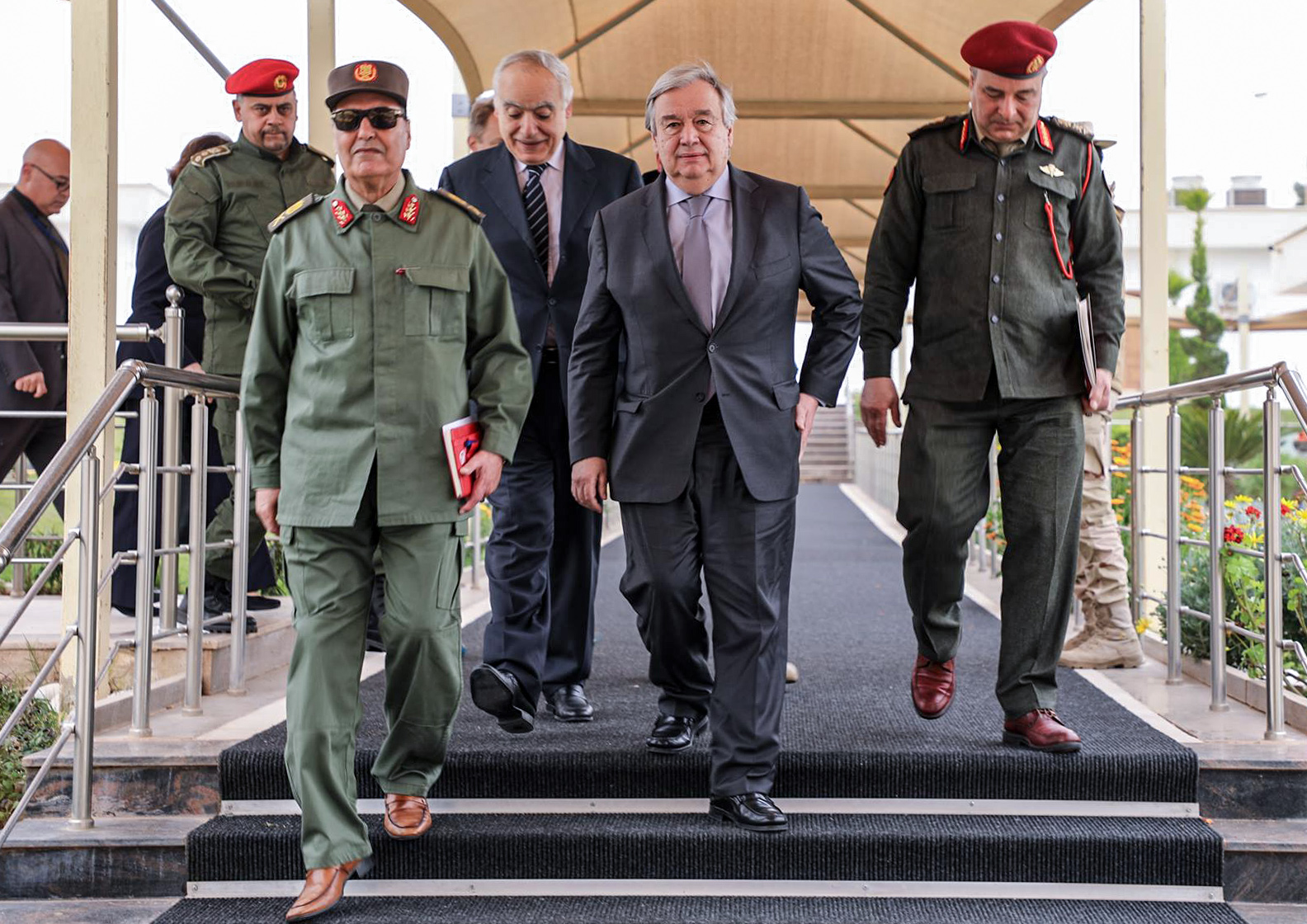
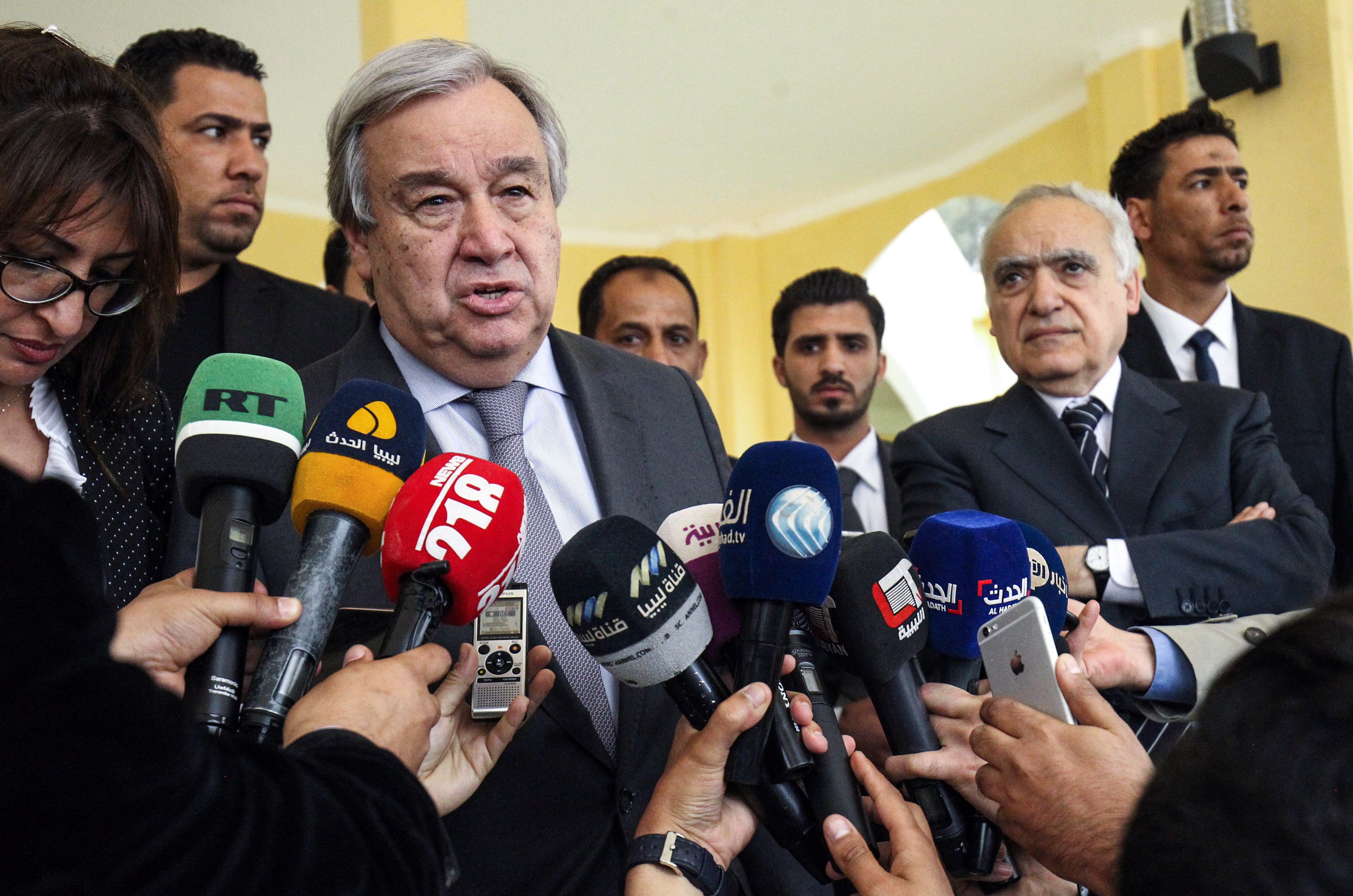
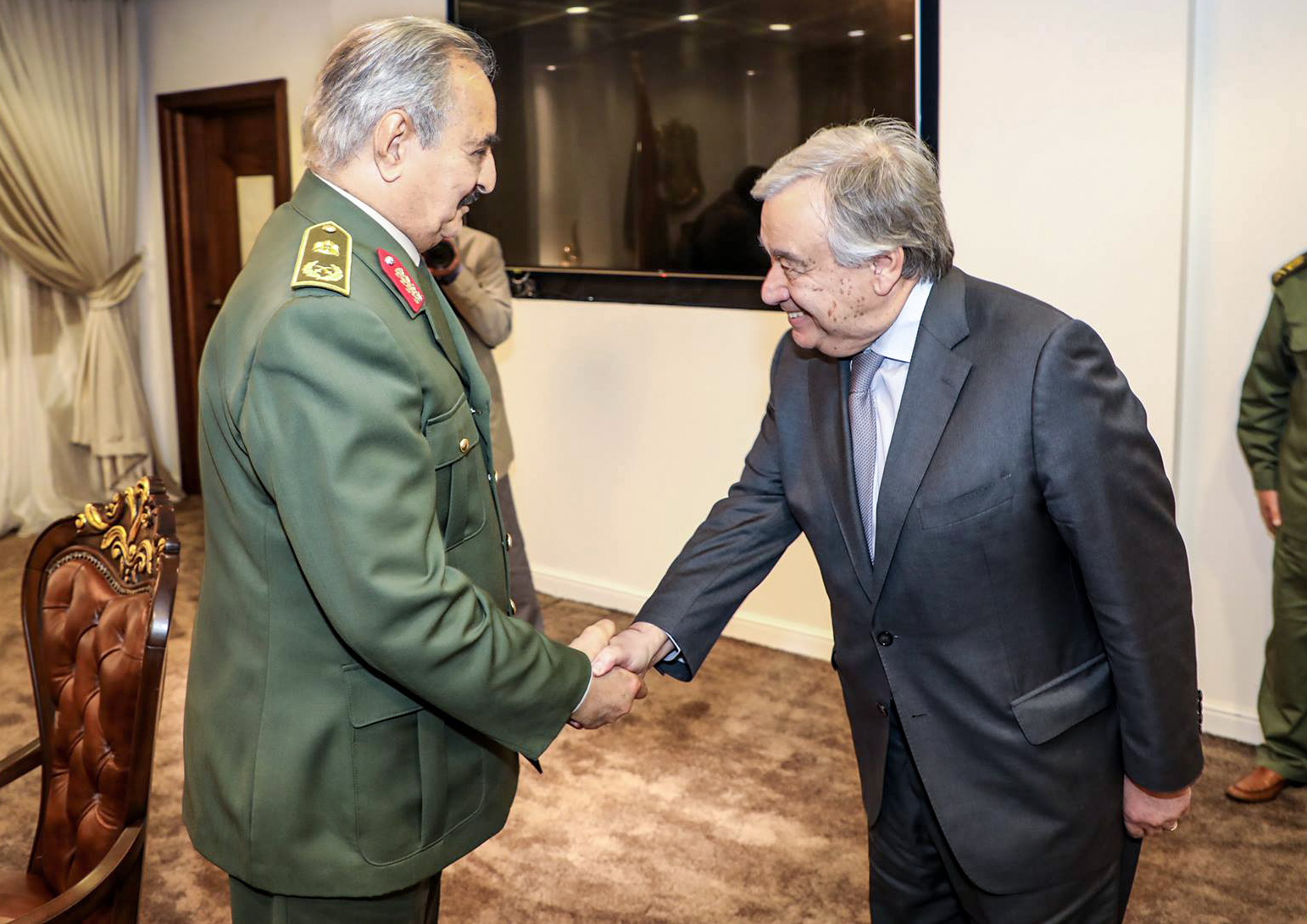

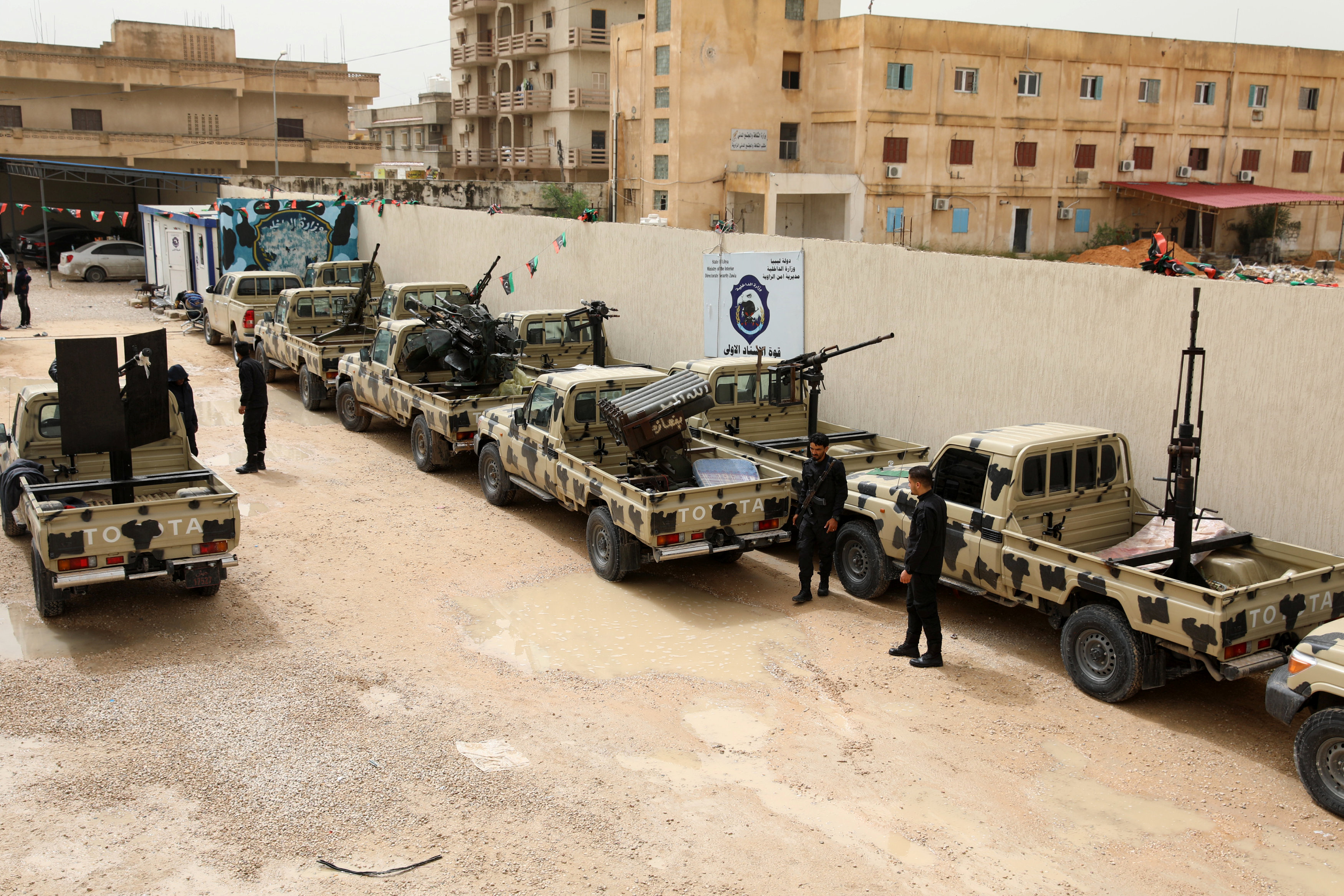
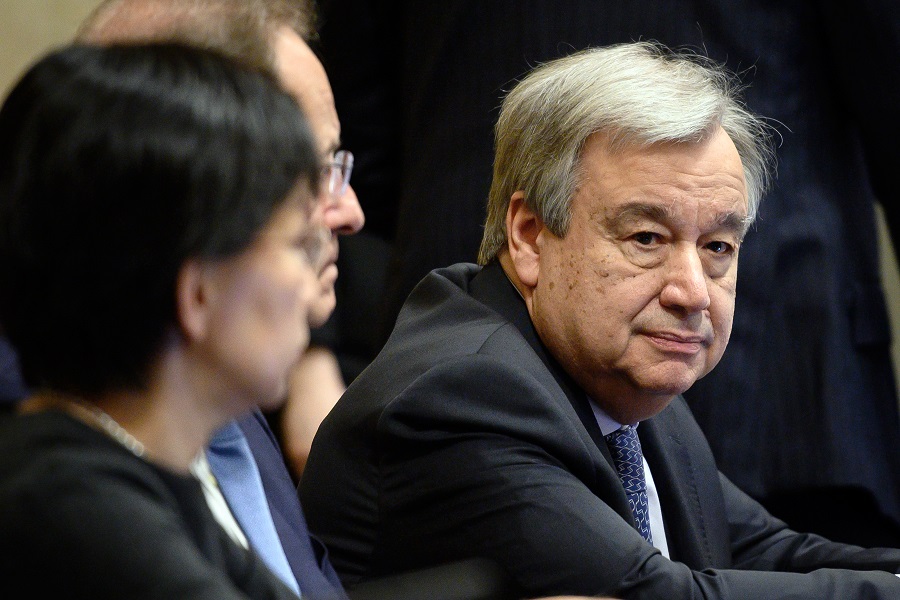
Libyan commander Khalifa Haftar orders troops to advance on TripoliEastern Libyan forces ordered to move west to fight militants




